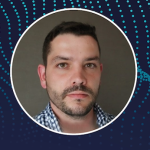So, what is it you do? by Brad Boundy, 6th January 2023
It’s probably the one question I dread being asked when I first meet someone. Not because I don’t like what I do for a living- on the contrary, I love it.
But the moment I disclose I work in data centre technical operations, I invariably get a polite, very British nod accompanied by an ‘Ah right’ or complete bewilderment. I can’t blame them. I’ve been working in data centres for 15 years and even my parents still have no idea what I do.
Sat at a roundtable with Lord Baker, my peers, our alliances, and some of the biggest hyper-scalers on the planet though, I began to strongly suspect that the next generation of engineers are unlikely to face the same challenge – and this is why.
If you haven’t heard of Lord Baker, he’s a fascinating person. Former Secretary of State for Education and Science in 1986 and now Chairman of the Baker Dearing Educational Trust, he has worked tirelessly to provide education and job opportunities in the areas that need it the most.
A task easier said than done. According to Lord Baker, few educators speak to local businesses about the skills needed (they’re busy delivering the school curriculum). Equally the subjects taught in school, seldom match the requirements and genuine skills gaps in the outside world.
A Founder of the University Technical Colleges, Lord Baker is on a mission to close that gap. Addressing the roundtable, he commented that if Education Secretary’s, educators and businesses aren’t aligned the next generation and the UK economy will be the ultimate casualties.
It reminded me of my own conversation with my school’s career advisor who asked me what I wanted to be. ‘An engineer’ I replied. ‘Which kind?’, he asked. In all honesty, I had no idea at that stage and that was the only answer I could offer. ‘Then I can’t help you’, he said – and that was the end of that conversation 🙂
Twenty years on, we live in a world where STEM / Science-based subjects at GCSE level have dropped in the last 10 years by a staggering 75%. The market has also seen a rapid decline in the investment in apprenticeships from big organisations. Contrast this with the exponential demands of the data centre industry, and the need becomes all the more poignant.
Thankfully, year one of the Digital Futures Program was a resounding success. We took our first group of students, explained the world that existed behind their phones, what a data centre is and how we as an industry we empower some of their favourite brands – And the outcome was 4 distinctions, 20 merits, 36 passes and 0 failures.
Our experience with that group taught us that (thankfully) there is a new generation forming which has a much better grasp on the importance of climate change, so the challenges we set, such as the evolving nature of sustainable technology, didn’t require a huge leap in understanding. Translating how and why they’re important in a data centre setting however, is an entirely different matter.
And therein lies the rub, I was tasked with authoring a 3-part assignment that would ask the students to run a project from conception through to delivery, covering the design of a cooling solution for our Cody Park campus – And I’ll save you the suspense, it’s not easy.
We present them with four different types of cooling, evaporative cooling, fresh air free cooling, indirect free cooling and mechanical cooling. We describe what each of them do, provide reading materials, and then ask what is good and bad about each of them. For example, free cooling is economical and environmentally efficient but should we consider combining it with mechanical cooling to hit our deliverable?
This is where a student’s mind offers huge benefits. They have no industry baggage, and they’re not afraid to ask the obvious questions to get the outcome – Which is why it’s critical to explain something in a way that sparks their imagination and gets them thinking differently.
Take resiliency as an example, (a term that could potentially induce narcolepsy in a young audience). I like to use the example of baking cupcakes. If I’m having a birthday party and have ten guests, how many cakes should I bake? Do I bake ten? or twenty, just in case? How should I carry them to the table, together or separately? What if I drop one? Just by leveraging a simple analogy, we can open up topics that can be tricky to access while getting the students thinking about options, consequences and the impact of those decisions.
Our role after all is to get these young people engaged and excited about a career in the data centre world – the assignments need to be challenging but accessible. And perhaps most importantly, designed for them to succeed.
I love that some of the student’s questions and solutions put forward challenged some of the smartest people we have in the room. Watching one extremely bright young man go toe-to-toe with our Head of Sustainability, Pip Squire on novel power generation technologies is a conversation I personally won’t forget in a hurry…
Listening to voices of our peers, alliances and competitors at Lord Baker’s roundtable, was a sobering reminder that we’re all in this together as an industry. That by combining our efforts, we can fix the skills gap, and step in where the traditional curriculum falls short.
Knowing the UTC movement has the potential to expand nationwide, has also ignited something in my own career. I’ve always loved my job but being able to give something back, and hopefully give a new generation the engineering bug, gives me a whole new purpose, not to mention an easier answer to the question ‘So what is it you do?’

